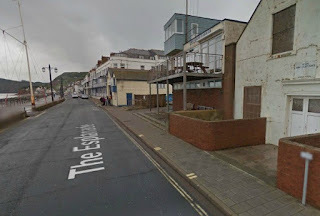Much of it's about 'Greater Exeter' - with regular reports on where we might be with this proposal from the EDW blog throughout April:
A warning for “Greater Exeter” as London council backs out of 3- council agreement due to lack of transparency and conflicts of interest | East Devon Watch
“Fears Greater Exeter Plan is being ‘dumped on us’ raised at consultation event” | East Devon Watch
Greater Exeter – BOOM, BOOM, BOOM | East Devon Watch
Public ‘not excited by devolution’ says firm of consultants | East Devon Watch
“Greater Exeter Strategic Plan”: are we already shafted? | East Devon Watch
And then there is the offer of union with neighbouring Somerset by way of the Local Enterprise Partnership:
What SHOULD super-Mayors (and LEPs) be doing? | East Devon Watch
LEP announces 8 new board members – four of which already held LEP positions | East Devon Watch
Ultimately, this issue is not really an issue as far as the public is concerned - as they seem totally turned off by it all:
Public ‘not excited by devolution’
6 Apr 17
The public is becoming increasingly disengaged with devolution despite its political priority for the government, research from consultancy firm GK Strategy has found.
A state-of-the-nation report on devolution in England found that whilst the agenda continues to be a political priority for the government, the prospect of further powers and accountability being shifted to a local level has failed to capture the public’s attention.
Yesterday’s report states “devolution has so far failed to win over the hearts and minds of people” because of a consistent reluctance by Whitehall to relinquish control over public spending.
Researchers explain that where local authorities do have greater control, they are working with smaller budgets and having to do more with less.
The perception that devolution is “merely passing the buck” of spending cuts to local authorities may be another reason why the concept has failed to capture public interest.
In partnership with its sister company onefourzero, GK monitored online conversations finding there has been a 37% decrease in online conversations regarding devolution in the UK from November 2014, when the first city deal was announced.
Devolution was most discussed in November 2015, around the time the city deals for Liverpool and Birmingham were sealed.
The report states: “What is remarkable is that despite the impending mayoral elections this May, conversations have steadily decreased year on year indicating a disengaged public.”
According to the researchers, there are two likely reasons for the level of disengagement with the concept of devolution, both of which are closely associated with the specific roles of elected mayors.
Firstly, the two largest English cities outside of London – Manchester and Birmingham – both voted against having an elected mayor less than five years ago in a referendum in each city.
Secondly, the public lacks a clear understanding over the role of the mayor in relation to the devolution process and the elected councils.
Chief executive of GK Strategy, Emily Wallace, said: “Our research clearly shows that whilst devolution in England has been a project of successive UK governments and been broadly supported by all major parties, it has failed to capture people’s interest in the way other issues have.
“A number of factors lie behind this, but a common view is that devolution in England has been delegation of blame at a time of public spending consolidation, rather than delegation of power and responsibility.”
Public ‘not excited by devolution’ | Public Finance
Public ‘not excited by devolution’ says firm of consultants | East Devon Watch
In fact, no one seems to be happy about the various deals being offered...
Futures Forum: The promises of devolution in the South West
Futures Forum: When and how does devolution become a scam? >>> >>> "The LEP for Devon & Somerset is enjoying a windfall, while public services are cut…"
Futures Forum: The increasing confusion of choices for devolution >>> >>> Heart of the South West LEP..... or: Greater South West..... or: Greater Exeter Growth and Development Board............. or: An Exeter/Plymouth/Torbay supermayor
Futures Forum: The Greater Exeter Visioning Board: and quietly pushing into East Devon
.
.
.










